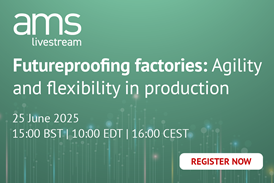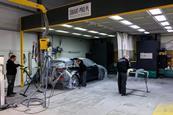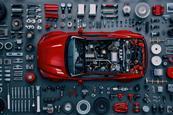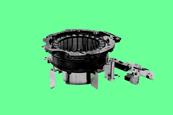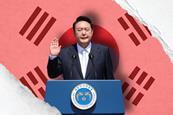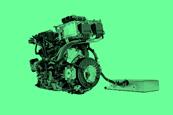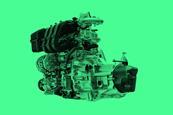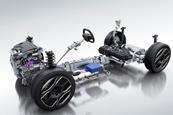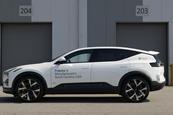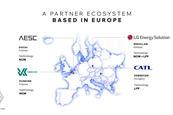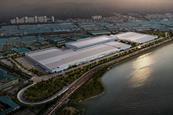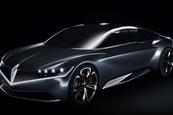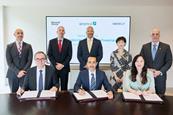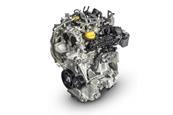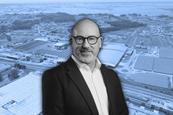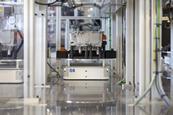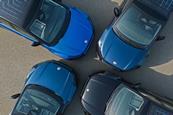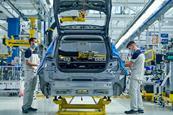Renault News
Automakers win reprieve on 2025 EU CO2 vehicle emissions targets
The European Commission is giving automakers until 2027 to comply with strict CO2 targets, offering relief to an industry struggling with EV sales and global competition.
Renault boosts sustainability with Poland’s new ‘Renew Factory’
Renault launches a sustainable repair facility in Poland, targeting the booming used car market while cutting costs and carbon emissions for refurbished vehicles.
The urgency for enhanced Design For Manufacture (DFM) in vehicle production
This is how Design For Manufacture is transforming automotive production with digital tools, collaboration, and agile strategies as Chinese OEMs outpace global rivals. With Western carmakers falling behind, expansion is critical.
Electrification: HORSE launches efficient dual eMotor production
HORSE begins producing a cutting-edge eMotor in Portugal, combining efficiency and power for hybrid and plug-in hybrid vehicles, with an output of up to 160,000 units annually.
South Korea declares Martial Law: Automotive Production braces
South Korea Martial Law sparks concern over its automotive production and global supply chains as political instability threatens key industries
Global car manufacturers target Korea’s booming import market
Foreign carmakers eye Korea as local demand grows for imported vehicles over domestic brands.
How HORSE is reimagining smart factories in powertrain production
HORSE’s digital production model drives innovation in powertrain manufacturing, setting new benchmarks in efficiency, flexibility, and sustainability.
Oyak Horse hits 7.5 million engine milestone, adds 100 new jobs
Oyak Horse hits 7.5 million engines produced at its Bursa plant, driving growth in hybrid production and creating new jobs to meet global market demand.
Hybrid powertrains – building the bridge to e-mobility
The future of internal combustion engines (ICE) is being extended through growing demand for hybrid powertrains as OEMs rebalance EV product line-ups.
Polestar starts US production of the Polestar 3
Polestar has started production of its Polestar 3 SUV at the Volvo plant in Ridgeville, South Carolina.
Philippe Krief becomes Renault Group CTO effective Sept 2024
Philippe Krief will become Renault Group’s Chief Technology Officer on September 1, 2024, while continuing as CEO of Alpine, aiming to drive innovation.
Ampere supports Renault Group with LFP technology and cell-to-pack solutions
Ampere will integrate LFP (Lithium Iron Phosphate) technology to complement NCM batteries (Nickel Cobalt Manganese) and create a European value chain.
Korea: the switch to EV production accelerates
Korean vehicle makers invest in flexible production and add more EVs. Foreign OEMs continue to invest in production for export.
BeyonCa chooses Hong Kong for new EV assembly plant
BeyonCa, backed by Renault, charts Hong Kong’s automotive future with plans for its first EV brand and assembly plant.
HORSE Powertrain welcomes Aramco as strategic investor
HORSE Powertrain Limited secures Aramco’s 10% equity investment to advance low-emission technologies.
HORSE announces next-generation Range Extender powertrains
HORSE is ramping up its powertrain production effciencies with range extenders delivering a 200km pure-electric range, and more…
Q&A with Patrice Haettel: CEO of powertrain tech firm, HORSE
We interviewed powertrain producer HORSE’s CEO, Patrice Haettel, to talk battery tech, flexible production, sustainability, data, digitalisation, and more
Renault subsidiary, HORSE, kicks off Power Electronics Box production
Production of the Power Electronics Box (PEB) at the Aveiro plant in Portugal, aims to enhance hybrid vehicles with technology redesigned for reliability and integrated systems management.
Impacts of global geopolitics on European production
From Brexit’s influence on battery production to global conflicts impacting shipping routes and semiconductor supply, these are geopoltical forces shaping manufacturing strategies.
The changing shape of Europe’s automotive production operations
European vehicle manufacturing is having to adapt to weakening EV demand and increasing competition.








